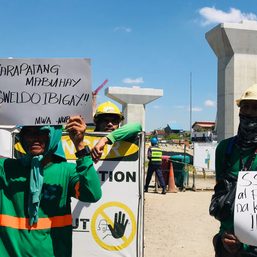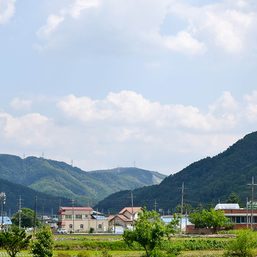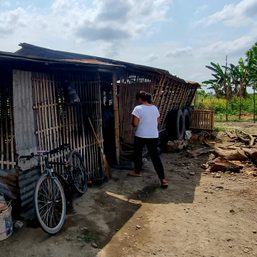SUMMARY
This is AI generated summarization, which may have errors. For context, always refer to the full article.
![[Science Solitaire] Work as life](https://www.rappler.com/tachyon/2021/07/SS-work-as-life-July-31-2021.jpg)
Do not let your work “define” you.
That is what you often hear when you need to be consoled for failing at your work or for your work failing you. But if you are what you spend most of your time doing, and you spend at least 50% of your waking hours working, shouldn’t it define you to a good extent?
If you work for an organization that has not gone through a re-imagining, or at the very least a “rethink,” of what it stands for and how it will flesh that out during this pandemic, your organization might have either already dissolved, or your team members are feeling very lost right now. The virus did not just accelerate its own transmission, it also forced us to quickly examine petrified ways of working – a big part of living – which has long been overdue.
Our word assignments for “work” in history are quite interesting. The Greek word for “labor” is “ponos,” which means “sorrow.” The root word of “career” is the Latin “carrus” (wheeled vehicle), which evolved into the mid-16th century word “career” that referred to a “road,” which in time also denoted a “race course.”
This week, I clearly heard “anti-echoes” of this 16th century notion from some of the young people I work with. One of the things I truly love witnessing is when I see another human being feeling unburdened because of a realization that s/he himself underwent.
“The pandemic made me realize that the notion of what you are supposed to have already achieved at a certain age does not make sense at all.”
That was the composite sentiment of many of them – in their 20’s and 30’s. These very strange times have allowed them to explore the many facets to their own personalities – strengths and possibilities, beyond the confined “qualifications” they had when they were hired with labels that have always puzzled me, like “entry-level” or “mid-entry,” as if there was a giant ruler that measured all our journeys. In this pandemic, more than ever, they discovered themselves – who they were and more importantly, who they were becoming. And it is when an organization connects with these “selves,” for them to discover their better selves in reaching their organization’s goals, does it stand a chance to succeed.
What has come into hyperfocus now is that each of us is on a journey, and that journey is not a straight road or a ladder, but more like a maze or, as in this TED Talk, a “squiggly.” “Work” in the 21st century is more about learning from each other’s journeys and making those journeys bear on the collective goals of the organization we work for. Various kinds of personalities, talents, and skills are required to make an organization work and evolve. Now more than ever before, organizations should know that they do not just get “change-ready” team members from the shelves of Linked-in – they have to cultivate them also from within.
Humans are not one-hit wonders. While we perceive many of our fellow humans as having one spectacular thing that they are known for, which is why we remember them, they are also interested and do valuable contributions in other things that may be hidden from you. In your teams, you will discover new depths and breadths in each other’s personalities by creating avenues for these to come out, be acknowledged, and be recruited to help you reach your goals.
“Power structures” in organizations also are significantly changing, if not already transforming. Fewer “bosses and subordinates” and more “colleagues” is what is required for now and in the future of work, beset by the challenges that require we be adept to adjust as an organizational beast.
In my 50’s now as in my 20’s, I still have trouble with the word “manager” as the blanket word used in organizations to be synonymous with “leadership.” The word has roots in “hand” (manus), but again in the 16th century, in training a horse where the master was the human shaping the horse’s behavior to only serve what the master thought was important – for races, shows, or carriages. Lovely as horses are, we have to come up with another blanket word for “manage” to refer to managing the complex human beings that we are when we interact with each other to serve common goals – which is what “work” is.
It is long overdue that we claim “work” as not something we look for. That is a “job.” Work is also not just what you are paid to do or what the market now thinks is worth a certain price. It is what you create out of what once were disparate elements of nature, life, and technology – paint, beads, clay, water, squash, carts, soil, air, ceramic, paper, algorithms, emotions, tunes, words, history, dogs, your unpinnable relationship with this or that human. In other words, “work” is what you do to become worthy of the spacetime you move into, the labyrinth of the lifetimes we share. Organizations are enablers of these creators, so they should all benefit from the successes.
Many wise humans who have studied the evolving nature of work have tried to warn us, but no one has spoken as clearly, convincingly, and forcibly as COVID has. – Rappler.com
Add a comment
How does this make you feel?




![[Time Trowel] Evolution and the sneakiness of COVID](https://www.rappler.com/tachyon/2024/02/tl-evolution-covid.jpg?resize=257%2C257&crop=455px%2C0px%2C1080px%2C1080px)




![[Episodes] Fairness to freelancers](https://www.rappler.com/tachyon/2024/02/Freelance-Writers-Guild-of-the-Philippines-rate-guide.jpg?resize=257%2C257&crop=217px%2C0px%2C720px%2C720px)




![[WATCH] Spoil me but respect me: A sugar baby’s story](https://www.rappler.com/tachyon/2024/03/titlecard-03.jpg?resize=257%2C257&crop_strategy=attention)

There are no comments yet. Add your comment to start the conversation.